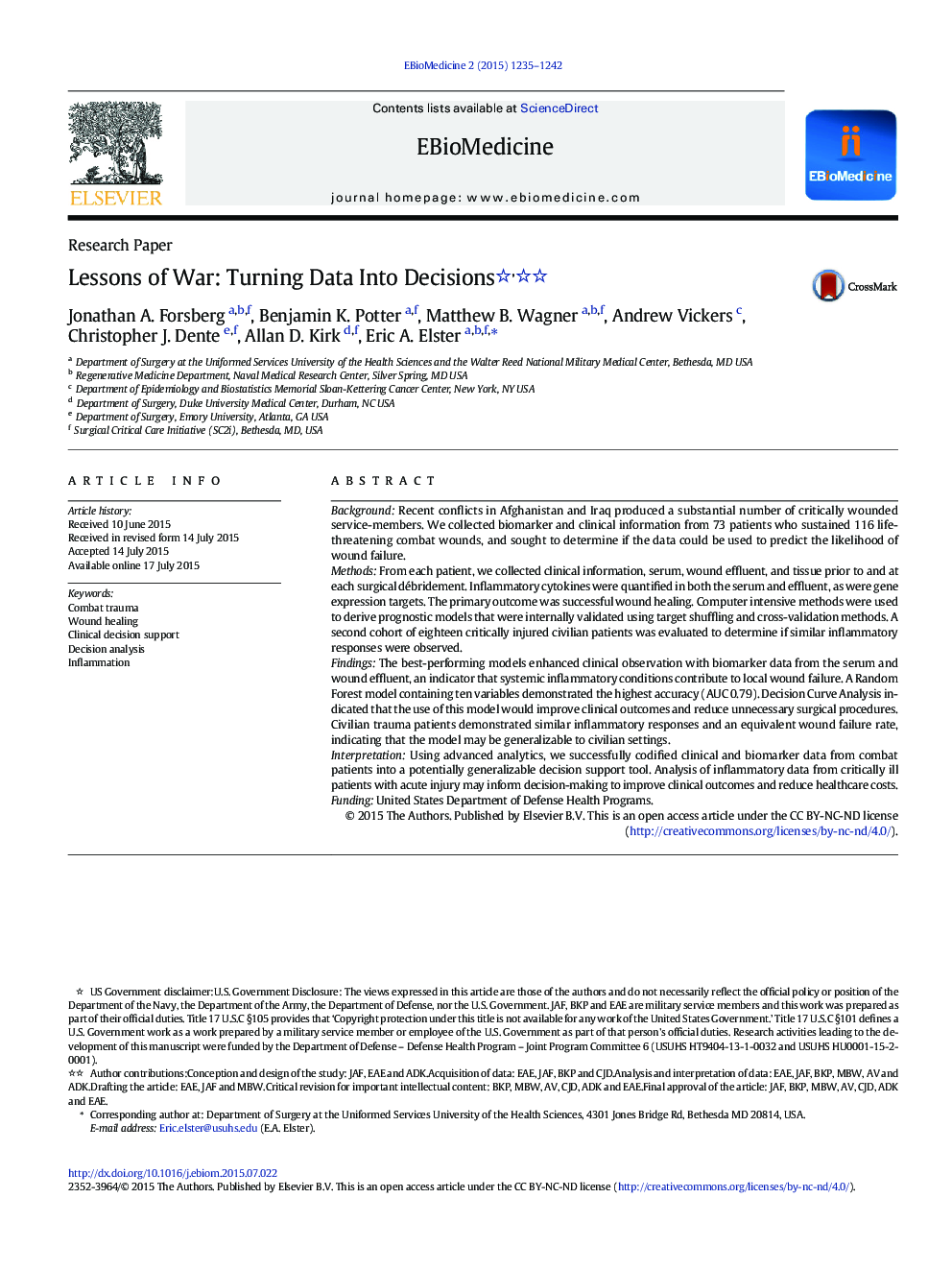| کد مقاله | کد نشریه | سال انتشار | مقاله انگلیسی | نسخه تمام متن |
|---|---|---|---|---|
| 2120923 | 1085764 | 2015 | 8 صفحه PDF | دانلود رایگان |
• We analyzed biomarker and clinical data to predict the likelihood of wound failure.
• We found that systematic inflammatory conditions contribute to local wound failure.
• This response is comparable between combat wounded and civilian patients.
• This response can be measured and translated into clinical decision support tools.
• These predictive models will benefit both military and civilian health systems.
BackgroundRecent conflicts in Afghanistan and Iraq produced a substantial number of critically wounded service-members. We collected biomarker and clinical information from 73 patients who sustained 116 life-threatening combat wounds, and sought to determine if the data could be used to predict the likelihood of wound failure.MethodsFrom each patient, we collected clinical information, serum, wound effluent, and tissue prior to and at each surgical débridement. Inflammatory cytokines were quantified in both the serum and effluent, as were gene expression targets. The primary outcome was successful wound healing. Computer intensive methods were used to derive prognostic models that were internally validated using target shuffling and cross-validation methods. A second cohort of eighteen critically injured civilian patients was evaluated to determine if similar inflammatory responses were observed.FindingsThe best-performing models enhanced clinical observation with biomarker data from the serum and wound effluent, an indicator that systemic inflammatory conditions contribute to local wound failure. A Random Forest model containing ten variables demonstrated the highest accuracy (AUC 0.79). Decision Curve Analysis indicated that the use of this model would improve clinical outcomes and reduce unnecessary surgical procedures. Civilian trauma patients demonstrated similar inflammatory responses and an equivalent wound failure rate, indicating that the model may be generalizable to civilian settings.InterpretationUsing advanced analytics, we successfully codified clinical and biomarker data from combat patients into a potentially generalizable decision support tool. Analysis of inflammatory data from critically ill patients with acute injury may inform decision-making to improve clinical outcomes and reduce healthcare costs.FundingUnited States Department of Defense Health Programs.
Journal: EBioMedicine - Volume 2, Issue 9, September 2015, Pages 1235–1242
